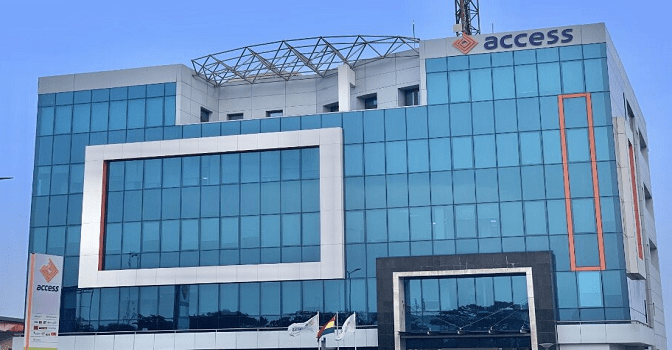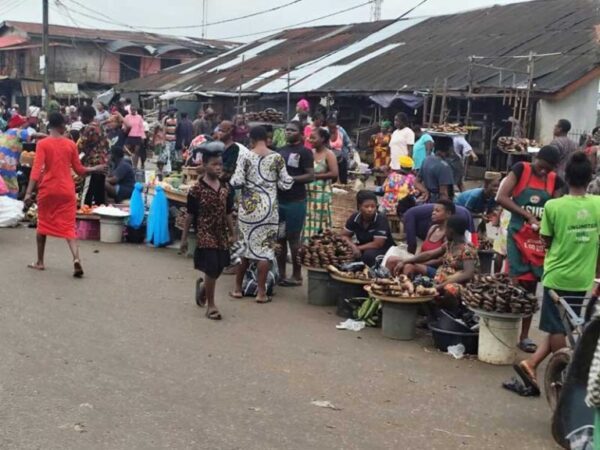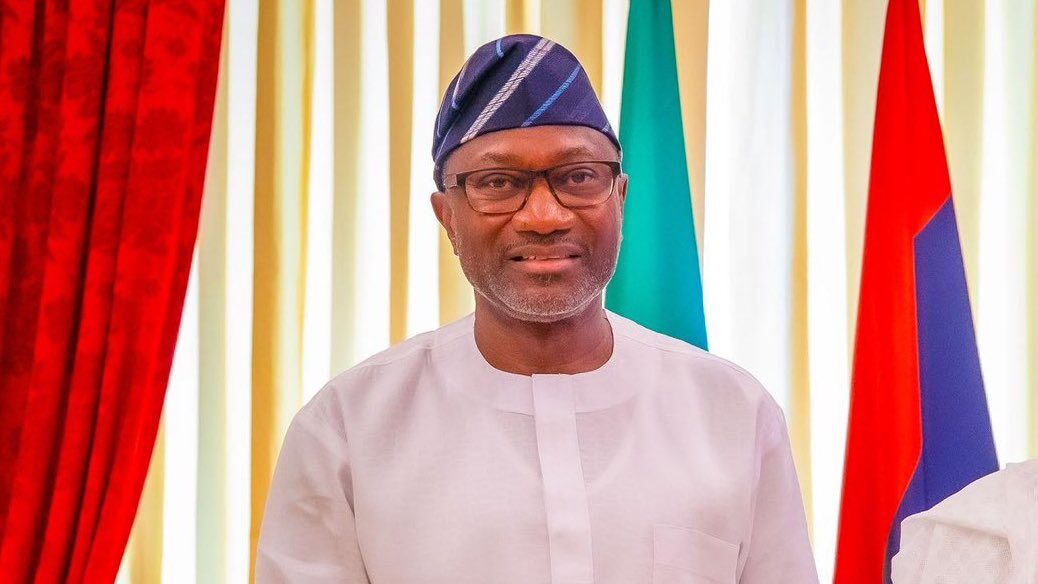
•Akpabio: Part of borrowing will be used to pay local contractors
•Red chamber sets up panel to probe multi-billion-dollar railway projects under Buhari
•Naira strengthens at official FX market as Nigeria moves ahead with $2.3bn Eurobond plan
•Stock market drops further by N611.9bn on cautious trading
Sunday Aborisade in Abuja, Nume Ekeghe and Kayode Tokede in Lagos
President Bola Tinubu has written to the Senate seeking approval for a fresh N1.15 trillion borrowing from the domestic debt market to finance the deficit in the 2025 budget.
This comes as the Senate yesterday, resolved to conduct a full-scale investigation into the railway projects executed under former President Muhammadu Buhari, following persistent derailments, vandalism, and mechanical failures on the Itakpe–Warri standard gauge rail line.
Also yesterday, the naira defied sentiments around United States President, Donald Trump’s threat against Nigeria over alleged widespread killings of Christians and rising religious intolerance in the country, as it appreciated at the Nigerian Foreign Exchange Market (NFEM) to close at N1,433.65 per dollar, stronger than the N1,436.34 it closed on Monday, reflecting renewed stability and improved sentiment across the foreign exchange market.
Nigeria also plans to sell $2.3 billion in Eurobonds as early as this week, testing investor appetite for the country’s sovereign debt, Bloomberg reported. The planned issuance would include 10-year debt and possibly 15- or 30-year securities, pending final approval from the Ministry of Justice.
However, the domestic stock market, yesterday depreciated further by N611.9 billion as investors sustained cautious trading. The market capitalisation that opened for trading at N97.582 trillion, shed 0.63 per cent or N611.9 billion to close yesterday at N96.970 trillion. Equally, the All-Share Index (NGX ASI) was down by 0.72per cent or 1,109.50 points to close at 152,629.61basis points from 153,739.11basis points the market opened for trading this week.
The President’s request for approval for fresh borrowing was contained in a letter read yesterday by Senate President Godswill Akpabio during plenary.
According to the President, the proposed borrowing was aimed at bridging the funding gap and ensuring full implementation of government programmes and projects outlined in the 2025 fiscal plan.
In the letter, Tinubu stated that the loan request was in line with the Fiscal Responsibility Act, 2007, which mandates National Assembly approval for all new borrowings by the federal government.
The letter partly read, “I write to kindly request the approval of the National Assembly to borrow N1,150,000,000,000 from the domestic debt market to close the unfunded deficit gap created by the increase in the budget size over and above the prior approved revenue and borrowing plans.
“This request is pursuant to the provisions of Section 44 (1 & 2) of the Fiscal Responsibility Act, which requires the approval of the National Assembly for all new borrowings by the Federal Government of Nigeria.
“The National Assembly passed a N59.9 trillion budget, an increase of N5.25 trillion from the N49.74 trillion proposal by the Executive. This increase created a budget deficit of N14 trillion.”
However, the proposed borrowing approved in the budget was N12.95 trillion, resulting in an unfunded deficit of N1.1 trillion.
“It is therefore necessary to increase the domestic borrowing limit in the 2025 budget by N1.147 trillion to close this gap.”
Following the announcement, Akpabio referred the request to the Senate Committee on Local and Foreign Debt, chaired by Senator Aliyu Wammako (APC, Sokoto North), with a directive to report back within one week for further legislative action.
Meanwhile, the naira yesterday appreciated at the NFEM, closing at N1,433.65 per dollar, stronger than N1,436.34 to a dollar it closed the previous day.
At the parallel market, the local currency traded flat at N1,440 per dollar, unchanged from Monday’s rate.
This comes despite recent geopolitical noise, including comments by Trump regarding Nigeria’s internal security challenges, the federal government has maintained its focus on economic and financial objectives.
According to Bloomberg, Nigeria plans to sell $2.3 billion in Eurobonds as early as this week, testing investor appetite for the country’s sovereign debt. The planned issuance will include 10-year debt and possibly 15- or 30-year securities, pending final approval from the Ministry of Justice.
The National Assembly had earlier approved a plan to raise $2.3 billion in foreign debt before the end of the year, alongside $500 million in sukuk (Islamic) notes, as part of the government’s 2025 financing strategy to deepen external reserves and support infrastructure financing.
Speaking on developments in the market, Head of Financial Institutions Ratings at Agusto & Co., Mr. Ayokunle Olubunmi, said the rebound in Eurobond prices signals renewed investor interest ahead of the upcoming issuance.
“The Eurobond market has rebounded from the declines recorded in the early hours of Monday. Nigeria is issuing Eurobonds, so what we are seeing is investors taking early positions in anticipation of the new instruments, which reflects continued confidence in the country’s external debt market,” he added.
In the meantime, Akpabio during plenary at the Senate, acknowledged the protests carried out by local contractors which led to the closure of all major entrances to the National Assembly that part of the loan would be used to settle them.
Hundreds of members of the All Indigenous Contractors Association of Nigeria (AICAN) yesterday stormed the National Assembly in Abuja to protest the federal government’s alleged failure to pay billions of naira owed to local contractors for completed projects.
The contractors, who marched through the streets carrying placards and chanting solidarity songs, accused the government of deliberately neglecting Nigerian-owned firms while prioritising payments to foreign contractors.
They said the development has crippled many indigenous businesses, forced several into bankruptcy, and worsened unemployment in the country.
According to the protesters, the federal government was indebted to local contractors to the tune of about N760 billion, representing verified projects already executed and certified across various ministries, departments, and agencies.
AICAN leaders, however, claimed the total outstanding for completed capital projects could exceed N4 trillion, when other pending obligations are included.
They told journalists during the protest that the government’s continued delay in settling verified debts had pushed many contractors to the brink of collapse.
They lamented that despite several assurances from the Ministry of Finance and the Budget Office, the promised payments have not materialised.
They said, “Government officials keep saying that our payments have been approved and warrants issued, but there is no cash backing.
“What that means is that the payment exists only on paper while contractors are left to suffer.
“We borrowed money from banks to execute these projects, and today, the same banks are taking over our properties because we cannot repay our loans.”
AICAN maintained that it would no longer accept new contracts without upfront mobilisation payments, stressing that previous experiences had shown that completed projects often linger unpaid for years.
The association also called on Tinubu to personally intervene in the matter and ensure that future projects are properly cash-backed to avoid recurring debt traps.
The contractors’ action followed months of frustration over what they described as the government’s “deliberate insensitivity” to their plight.
Despite claims by officials that about N3.1 trillion had been approved for contractor payments, AICAN insists that many of its members remain unpaid.
Last month, the Deputy Speaker of the House of Representatives, Benjamin Okezie Kalu, facilitated a meeting between the association and the Minister of Finance, Wale Edun, in an effort to resolve the impasse.
However, the contractors said no tangible outcome followed.
The protesters urged lawmakers to intensify oversight of the capital budget and ensure that payment processes for verified projects are transparent and timely.
Senate Sets Up Panel to Probe Multi-Billion Dollars Railway Projects Under Buhari
The Senate yesterday, resolved to conduct a full-scale investigation into the railway projects executed under former President Muhammadu Buhari, following persistent derailments, vandalism, and mechanical failures on the Itakpe–Warri standard gauge rail line.
The red chamber also set up an ad hoc committee to carry out a comprehensive probe into the contracts, funding, and execution of all railway projects undertaken during the Buhari era and to submit a report within six weeks.
Members of the panel include Senators Adams Oshiomhole, Huseini Babaginda, Adamu Aliero, Wasiu Eshinlokun, Osita Ngwu, Adeola Solomon, Ibrahim Dankwabo, Ireti Kingibe, and Sahabi Yau.
The Senate’s resolution followed a motion sponsored by Senator Ede Dafinone (Delta Central), who raised alarm over the “disturbing and persistent technical breakdowns” on the Itakpe–Warri rail corridor, one of the flagship projects of the Buhari administration.
Dafinone said the line, commissioned with great national fanfare just a few years ago, had become a source of embarrassment and danger due to frequent derailments and service disruptions.
He disclosed that the line recorded no fewer than 10 derailments and several breakdowns between 2023 and 2025, incidents that have endangered passengers and eroded public confidence in Nigeria’s rail system.
He therefore urged the Federal Ministry of Transportation and the Nigerian Railway Corporation (NRC) to immediately undertake an independent technical assessment of the line to determine the root causes of the failures and implement corrective measures.
Dafinone further recommended that the NRC increase operational capacity, deploy more coaches, and ensure at least two passenger services daily in each direction between Ujevwu and Itakpe.
Supporting the motion, Senator Abdul Ningi (Bauchi Central) described the situation as a national embarrassment.
Ningi said, “The government borrowed billions of dollars to construct these lines, yet they are collapsing barely two years after completion.
“This is not about politics. We must hold those responsible accountable for negligence and mismanagement.”
Senator Patrick Ndubueze (Imo North) called for a complete reorganisation of the NRC, saying the corporation “is no longer fit for purpose.”
He argued that the decay in the rail system was placing undue pressure on Nigerian roads.
“Our highways are failing because freight that should move by rail is transported by road. Fixing the railways will save lives and preserve our roads,” he said.
Senator Solomon Adeola (Ogun West) also backed the motion, urging a transparent probe into how much was borrowed and spent on the projects, the contractors involved, and whether due process was followed.
“We must find out whether this is a case of poor workmanship, corruption, or lack of supervision,” he said.
Senator Babangida Hussaini (Jigawa North-West) blamed Nigeria’s chronic project failures on poor conception and maintenance culture.
“The same Chinese firms that built the Mombasa–Nairobi railway in Kenya delivered a functional system that still works efficiently. Why is ours collapsing within months?” he asked.
However, the debate took a dramatic turn when Senate President Godswill Akpabio, who presided over the session, delivered a fiery address accusing those who mismanaged the railway projects under Buhari of gross incompetence and deceit.
Akpabio said it was “shocking” that some of the same individuals responsible for the failures were now warming up to take power from Tinubu in 2027, despite having left behind what he described as “a trail of waste, debt, and deception.”
Akpabio said, “You’ll be shocked that the same people, the same people that did this were lying. They are the same people now seeking to take back the government by revolution.
“The same characters, without remorse, without answering questions, are the ones now seeking to take back the government after leaving this kind of mess behind, with the amount of indebtedness they caused the country.”
Visibly angered, Akpabio questioned how a project that cost “trillions of naira” could begin to fail within months of commissioning.
He said, “You spend trillions on rail lines, you commission them, and within one year you have all sorts of mechanical faults.
“We must find out whether these were truly new lines or refurbished scraps bought and repainted as new. Nigerians deserve to know the truth,” he said.
The Senate President drew comparisons with similar projects abroad built by the same contractors that have remained functional for decades, describing Nigeria’s failures as “a tragic symbol of corruption and poor oversight.”
He also clarified that most of the derailments recorded in 2023 and 2024 occurred before the Tinubu administration took office, saying it would be unfair to blame the current government for inherited problems.
“These derailments started before we came. This government inherited a failed system,” Akpabio said.
At the end of the debate, the Senate adopted far-reaching resolutions mandating the Ministry of Transportation and the NRC to immediately repair the Itakpe–Warri rail line, improve safety measures, and deploy additional rolling stock to restore full operations.
The upper chamber also empowered its Committee on Land Transport to carry out an on-the-spot assessment of the affected routes, particularly around Agbor in Delta State, and to submit a detailed technical report.
It further resolved that the committee should conduct a comprehensive investigation into all railway projects executed during the Buhari administration, including funding sources, contract awards, and construction standards.
Lawmakers also endorsed the establishment of a National Rail Safety and Standards Unit to carry out periodic audits, enforce compliance with international best practices, and enhance accountability across the railway sector.
Closing the session, Akpabio vowed that the Senate would “dig deep, expose corruption, and ensure that those who mismanaged Nigeria’s rail projects are held to account.”
He declared: “We owe Nigerians the truth. We must unravel the mystery behind these failing rail lines and ensure that those who ruined them do not escape scrutiny, or return to power to repeat the same mistakes.”
The resolution marks one of the boldest oversight steps by the 10th Senate, signaling a renewed determination to hold public officials accountable for the country’s ailing infrastructure.





